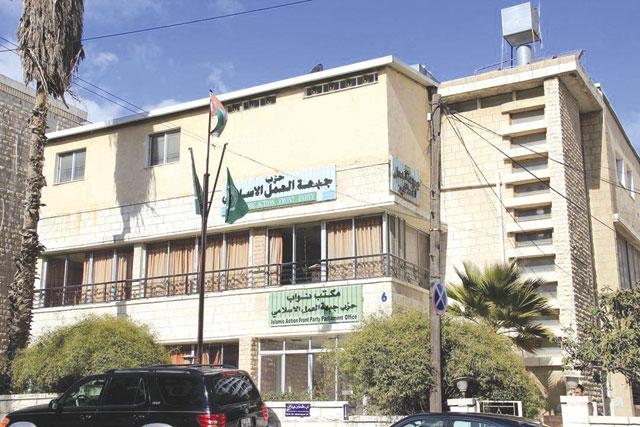You are here
Brotherhood internal feud puts group at historic crossroads
By Khetam Malkawi - Feb 28,2015 - Last updated at Feb 28,2015

AMMAN — The Muslim Brotherhood in Jordan is passing through a critical existential moment as it faces the worst division among its members since its establishment in 1946, analysts and experts agreed.
The group is witnessing divisions within its ranks, with moderate leaders and members in the group seeking to relicense it as a local movement, thus disengaging from the Egypt-based international organisation of the Muslim Brotherhood, which has been labelled as a terrorist group by several Arab countries, namely, Egypt, the UAE and Saudi Arabia.
Muslim Brotherhood-Jordan was licensed in 1946 as a charity affiliated with the mother group in Egypt and relicensed in 1953 as an Islamic society.
Recently, former overall leader of Jordan’s Brotherhood, Abdul Majeed Thneibat and other reformist leaders filed an application with the authorities requesting to license the group as a Jordanian charity not affiliated with their Egyptian peers. The move triggered an angry response by the current leadership, which had already dismissed Thneibat as he was drumming up support for his move and collecting signatures for the licensing petition, according to Thneibat and his supporters, and recent statements by Brotherhood leaders.
Thneibat protested that his dismissal is illegal as he is affiliated with the international movement.
He also told The Jordan Times that he was not summoned for the internal trial conducted by the group to defend his stand, adding that all procedures taken against him had no legal basis.
Thneibat insisted that relicensing the Jordanian movement is the best step to save its presence in Jordan.
“As we are affiliated with the movement in Egypt, we will be affected by any decision taken against them. At the end of the day, we want to avoid being labelled as a terrorist group,” Thneibat explained.
There has been no response from the government yet on whether it will relicense the movement, but “we will go on” with the reform process, said the Islamist leader.
According to Hassan Abu Haniyeh, an expert in Islamic movements, this is the worst crisis in the history of the group’s Jordanian version.
He said there have always been conflicts in the group’s body, but these were differences on either ideological or political grounds.
“This time, it is more of an identity issue,” the expert said.
He added that the future of the movement now is in the hands of the government and on how it will deal with this dispute, as it might reject the relicensing application on grounds that the group is already licensed, or endorse it. In the second case, he said, we will have two Brotherhoods: one legal and an illegal opponent of it.
This opinion was echoed by Ibraim Gharaibeh, another expert on political Islamic groups and a former member of the Brotherhood.
Gharaibeh noted that those opposing the move to rectify the status of the group, in case of the issuance of the sought licence, will likely seek legitimacy through membership in the Islamic Action Front, the political arm of the Muslim Brotherhood, which is a licensed party.
But the situation is not this simple, according to the analyst.
If the licence is granted, all properties owned by the group will automatically be claimed by the new registered group.
Meanwhile, Samih Maaitah, a columnist at Al Rai newspaper and also an expert in Brotherhood affairs, said the movement is also opposing the reforms led by Thneibat because once they are registered, some skeletons in the closet will come out, including, for example, sources of funding.
Maaitah also noted that the group’s future is now in the balance because the conflict is from inside.
Government officials were unavailable to comment on the issue.
Related Articles
AMMAN — The Muslim Brotherhood has modified its by-law, ending the group’s affiliation with the mother group in Cairo, a move that was descr
The Muslim Brotherhood old guard on Sunday accused the newly licensed group, that holds the same name, of leading a coup targeting the movement’s legitimacy.
The new Muslim Brotherhood (MB) organisation will meet on Sunday to take a final decision on how to deal with the old guard who, they say, run an “illegal” version of the group.
















